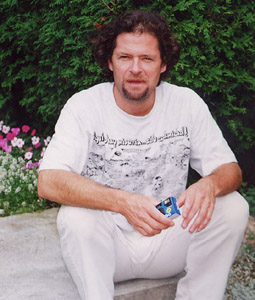
by Grahame Russell

We must transform the mechanisms of wealth creation and distribution. Once
again, poverty is in the news -- from the recent United Nations Millennium
Summit in New York to the current annual meeting of the World Bank and the
International Monetary Fund in Prague. And each year the "What to do about poverty"' discussion becomes increasingly misleading
to billions of victims of poverty worldwide.
Poverty is the No. 1 annual killer on the planet.
Along with environmental destruction, poverty is increasing as is wealth
accumulation. Half the world's population live on less than US$2 per day. About
17 million people are killed annually of malnutrition and preventable diseases,
and statistics barely tell the story about barely surviving in, or dying of,
poverty.
Poverty manifests itself in all aspects of life:
* It is a systematic violation of our rights to health, food, potable water,
education, housing and work; children have no time and nowhere to play and
study, let alone get proper nourishment.
* It is characterized by violations of political and civil rights; protesting
against poverty conditions often results in repression.
* It has psychological manifestations: mental-health suffering and loss of
personal dignity and self-worth.
While leaders may be truly concerned about the ravages of poverty, the issue
becomes trickier when one starts asking "What are the underlying causes of
poverty?"
The World Bank 2000 Development Report says: "This destitution persists
even though human conditions have improved more in the past century than in the
rest of history." The statement should read that "human
conditions have improved for some in the past century."
Unwilling to understand how destitution and wealth co-exist, the World Bank
report also says: "But the distribution of these global gains is
extraordinarily unequal." Leaving
aside the issue of the unsustainability of the economic-development model based
in part on massive-consumption and environmental destruction, the World Bank is
correct to point out the "extraordinary inequality" in wealth
distribution. But a more-important point is that the World Bank is a contributor
to these inequalities. Poverty is
not God-given; it is the result of decisions taken by humans and our
institutions.
Poverty and wealth are inseparable; one cannot eradicate poverty without
transforming the legal, economic and political mechanisms of wealth creation,
production and distribution. The
discussions on poverty and on the development industry are like spinning wheels,
with little change in the equation. We are on a treadmill:
We spend public and private funds to help the poor, who keep getting
poorer. Instead, we should attack
poverty at its roots.
The narrow focus on poverty also is disempowering.
Every year, caring citizens hear about 'great work' being done to end
poverty. Every year, we learn that
poverty is increasing. We are left
with no direction to follow.
And yet there is no lack of options for just and efficient models of economic
development. Across the planet,
citizens and organizations are intelligently -- often at great personal risk --
working to address the ravages of poverty and transform the underlying causes.
While changes are needed in individual countries, they are needed more so at the
international level.
Like environmental destruction, the 'problem' of poverty is found in the very
nature of our global political, economic and development order. Until we open
the debate and discussion up to these levels of national and international
economic and development policies and programs, we simply will continue
documenting and lamenting last year's poverty and handing out "aid"
packages to the poor. (Feel free to copy and re-distribute and publish this
article.)
Grahame Russell is the director
of Rights Action, which supports development and human rights in Mexico and
Central America.
Tel: (416) 654-2074.
Website: www.rightsaction.org
E-mail: grussell@rightsaction.org
FINIS